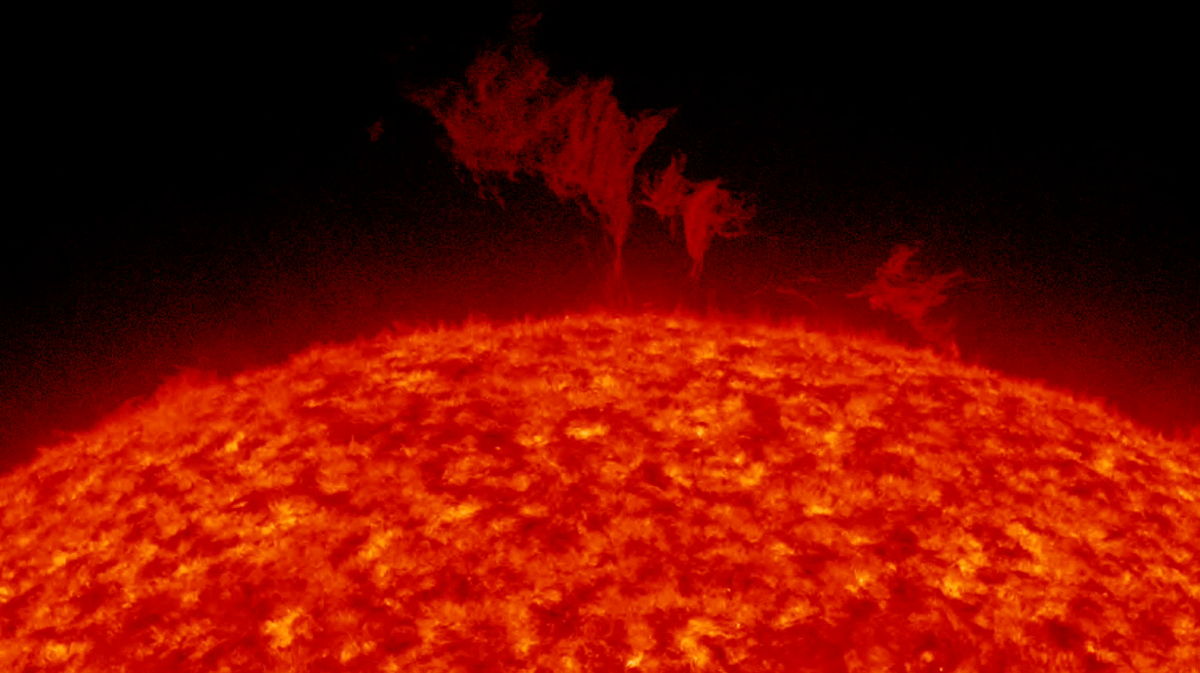Study: Hubble Robotic Repair Mission Too Costly
CAPE CANAVERAL -- An exhaustive study of NASA's options for repairing the Hubble Space Telescope suggests the currently planned robotic mission may cost too much money and might not be ready to fly before the vaunted observatory breaks down.
The Aerospace Corp., commissioned to study all the possibilities for NASA, has told the National Academy of Sciences that the most sure-fire way to conduct the next Hubble servicing mission is the method successful four times before -- a shuttle carrying an astronaut repair crew.
Also, the summary of the report says, it might make more financial sense to fly a "de-orbit" module to drive Hubble into the ocean and install the upgraded instruments on a new telescope.
The Aerospace Corp. report is the most comprehensive review yet of various options for dealing with the aging Hubble spacecraft, which is one of NASA's most successful missions ever.
NASA declined to comment on the substance of the Aerospace Corp. report, saying it was designed as an examination of alternatives to help managers make well-founded decisions.
"It's being used for internal information for planning, to get an overall view of all of the options we have with Hubble so the managers can continue working toward the option that we're working on now -- the robotic mission -- but not close off the other options," said Don Savage, a spokesman at the space agency's headquarters in Washington.
The National Academies has a panel of experts studying the Hubble issue and, so far, what they have told NASA is a robotic mission could prove challenging and recommended that the space agency not take any steps that would prevent a possible shuttle mission to Hubble if necessary.
Get the Space.com Newsletter
Breaking space news, the latest updates on rocket launches, skywatching events and more!
The newest findings will be part of a congressionally mandated report to be made public Wednesday.
Quick fixes needed
Hobbled by glitchy steering gyroscopes, draining batteries and other problems, Hubble is expected to fail as early as 2007 if something is not done to service the telescope.
NASA had planned to fly a fifth shuttle mission to the telescope prior to the Columbia accident. However, since that accident, NASA Administrator Sean O'Keefe has said it's too risky to endanger astronauts by flying to Hubble where there is no place for the crew to take safe harbor and await a rescue if something goes wrong.
The new plan: launch a Delta 4 or Atlas 5 rocket from the Cape carrying a two-armed robot that would repair the telescope and install new instruments, extending its life through about 2013.
FLORIDA TODAY reported last month that the cost of a robotic mission -- up to $2 billion -- is raising questions about whether it's worth the investment amid tight budgets and periodic reports of technical woes that could cripple the spacecraft before the robot gets there.
High-risk mission
The Aerospace Corp. report adds weight to that concern. The summary says the robotic servicing mission is "high risk" and would cost $2 billion. The analysts predict it would take five years to tackle the technology, but Hubble "will likely fall into an unservicable state in about four years, before robotic service mission could arrive."
Overall, the report said the mission faced "high failure risk." They said such a mission has only a 50-50 chance of succeeding.
For about the same amount of money, the report said, two new instruments that the robot would install on Hubble could instead be flown on a brand new telescope. However, the report noted that cost overruns and technical issues could raise the price and leave a gap in science operations lasting two to seven years.
The National Academies panel, which has gotten input from scientists and engineers inside and outside NASA about the dilemma, is continuing to study the issue and is expected to issue another report to Congress on Wednesday.
Published under license from FLORIDA TODAY. Copyright ? 2004 FLORIDA TODAY. No portion of this material may be reproduced in any way without the written consent of FLORIDA TODAY.
Join our Space Forums to keep talking space on the latest missions, night sky and more! And if you have a news tip, correction or comment, let us know at: community@space.com.
John Kelly is the director of data journalism for ABC-owned TV stations at Walt Disney Television. An investigative reporter and data journalist, John covered space exploration, NASA and aerospace as a reporter for Florida Today for 11 years, four of those on the Space Reporter beat. John earned a journalism degree from the University of Kentucky and wrote for the Shelbyville News and Associated Press before joining Florida Today's space team. In 2013, John joined the data investigation team at USA Today and became director of data journalism there in 2018 before joining Disney in 2019. John is a two-time winner of the Edward R. Murrow award in 2020 and 2021, won a Goldsmith Prize for Investigative Reporting in 2020 and was a finalist for the Pulitzer Prize in Investigative Reporting in 2017. You can follow John on Twitter.









